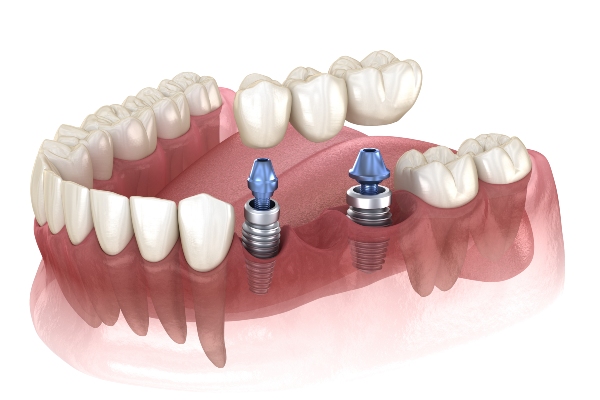 Curious about what is considered general dentistry? Read on to learn more. A general dentist can help with the prevention and treatment of oral health concerns such as dental cavities and gum disease. General dentists recommend cleaning and check-up visits once every four to six months to maintain ideal oral hygiene.
Curious about what is considered general dentistry? Read on to learn more. A general dentist can help with the prevention and treatment of oral health concerns such as dental cavities and gum disease. General dentists recommend cleaning and check-up visits once every four to six months to maintain ideal oral hygiene.
When you should visit a general dentistry office
For most patients, a check-up and cleaning visit two or three times a year are all that is necessary to prevent oral health concerns from developing. However, a general dentistry visit should also be scheduled if signs of tooth decay, gum disease, or dental trauma develop.
Every four to six months
The long-term strategy for most people is to prevent oral health concerns from developing through good care at home and preventive treatments such as dental cleanings. General dentists recommend cleaning and check-up visits every four to six months (or two to three times per year). During a routine cleaning, plaque and tartar are removed from the surface of teeth and along the gum line. An oral examination is also conducted during each routine visit.
Signs of tooth decay
It is important to recognize the early signs of tooth decay and schedule a visit with a dentist as soon as possible when they develop. Worn-down enamel is reversible in the early stages, but restorative care is necessary if the enamel erodes. The early signs of tooth decay are a build-up of plaque and tartar on teeth, discolored enamel, dark spots on teeth, and bad breath.
Signs of gum disease
Gum disease becomes more challenging to deal with the longer it is left untreated. The early signs of gum disease are a build-up of plaque along the gum line, bleeding gums, gum swelling, discolored gums, and gum pockets that are too large. If any issues with the gums are detected between check-up visits, then it is encouraged to notify a general dentist and schedule a visit.
Dental trauma
Dental trauma can occur during physical exercise, while playing sports, from grinding teeth when sleeping, and in numerous other ways. When teeth are unexpectedly and suddenly damaged, then it is important to have them treated promptly to minimize damage and ensure a fast recovery. The common types of dental trauma include chips, cracks, gum damage, and teeth that are knocked loose or out of the socket.
Discomforting symptoms
People who experience discomforting symptoms such as tooth sensitivity, tooth pain, gum pain, or jaw pain should contact their general dentist to schedule a visit. This helps ensure early detection of any oral health concerns and prompt treatment to minimize any long-term effects from the concern.
Are you ready for your next check-up and cleaning?
If you are due for your next teeth cleaning, then call our general dentistry practice today. We can schedule a visit at a time that is convenient for you and help you keep a beautiful and healthy smile. We offer a range of diagnostic, preventive, and restorative treatment services.
Request an appointment or call Summit Family & Cosmetic Dentistry at 908-516-3833 for an appointment in our Summit office.
Related Posts
When patients visit the general dentistry office, the goal is to keep their oral health excellent. The appointment may be nothing more than a professional dental cleaning and getting instructions on proper oral health so long as there are no oral issues. If dental problems are to be addressed, the dentist will recommend the appropriate…
Like a doctor’s office visit, general dentistry is not something you want to neglect or dismiss. Your oral health is as important as any other aspect of your well-being. As you go to the dentist’s office, you can find out about any troubling issues affecting your teeth and gums. In between dental appointments, you are…
In general dentistry, dental sealants can help ensure good dental health in children. The protective layer can also extend up to adulthood. This gives patients the opportunity to enjoy strong teeth without worrying about dental damage. If you want to know how general dentistry makes use of dental sealants, here are the details.Chewing and biting…


